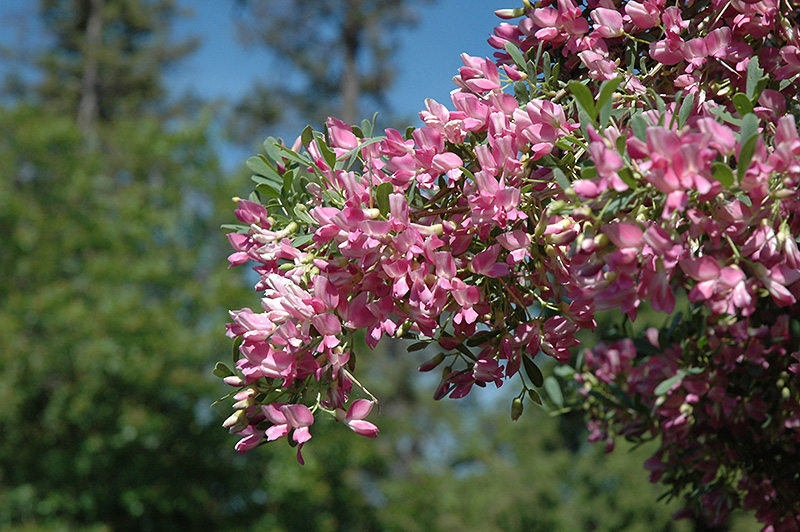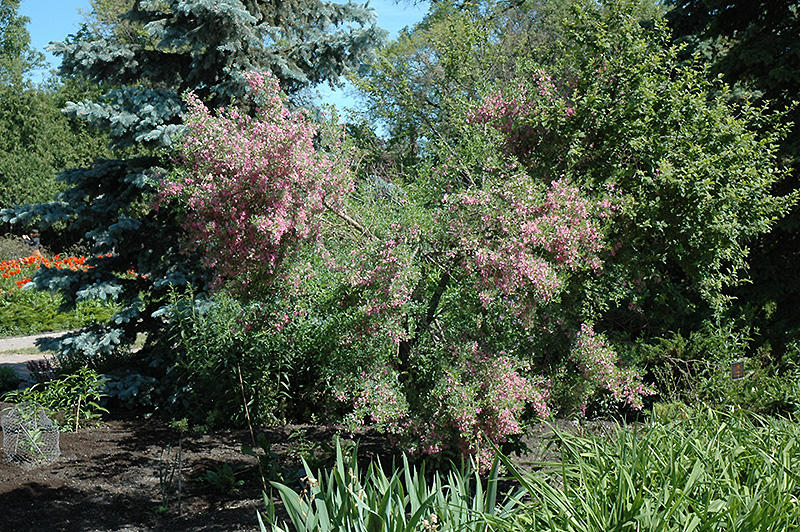Height: 6 feet
Spread: 3 feet
Sunlight:
![]()
Hardiness Zone: 2b
Other Names: Salt Tree, Salt Bush
Description:
A valuable rugged shrub tolerant of very salty, dry and alkaline conditions; upright habit of growth, features pretty light purple pea-like flowers in spring along branches; somewhat spiny, great accent plant for difficult locations
Ornamental Features
Saltbush features showy lilac purple pea-like flowers along the branches from late spring to early summer. It has gray deciduous foliage. The round pinnately compound leaves turn yellow in fall.
Landscape Attributes
Saltbush is an open multi-stemmed deciduous shrub with an upright spreading habit of growth. It lends an extremely fine and delicate texture to the landscape composition which can make it a great accent feature on this basis alone.
This is a relatively low maintenance shrub, and is best pruned in late winter once the threat of extreme cold has passed. Gardeners should be aware of the following characteristic(s) that may warrant special consideration;
- Spiny
Saltbush is recommended for the following landscape applications;
- General Garden Use
Planting & Growing
Saltbush will grow to be about 6 feet tall at maturity, with a spread of 3 feet. It tends to be a little leggy, with a typical clearance of 3 feet from the ground, and is suitable for planting under power lines. It grows at a medium rate, and under ideal conditions can be expected to live for 40 years or more.
This shrub should only be grown in full sunlight. It prefers to grow in average to dry locations, and dislikes excessive moisture. It is considered to be drought-tolerant, and thus makes an ideal choice for xeriscaping or the moisture-conserving landscape. It is particular about its soil conditions, with a strong preference for clay, alkaline soils, and is able to handle environmental salt. It is highly tolerant of urban pollution and will even thrive in inner city environments. This species is not originally from North America.



